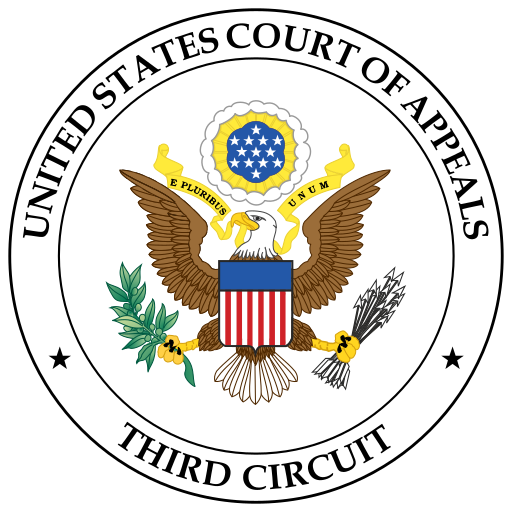Judge Thomas Hardiman of the Third Circuit wrote approvingly of Tax Court Judge Albert “Scholar Al” Lauber’s opinion in the case of Mitchel Skolnick. It is a large dollar hobby loss opinion – horses of courses – that may have implications in the future. In approving the IRS denial of the over $3,000.000 in losses on Bluestone Farms LLC (85% owned by Skolnick), Judge Lauber indicated that he had weighed the sixth of nine regulatory factors – history of income and losses – very heavily in making his determination that Bluestone was not an activity carried on with an intent to make a profit. From 1998 to 2013, losses had totaled over $11,000,000.
Background
The asserted tax and penalty deficiency for 2010-2013 was over $1,000,000 split unevenly between 85% owner Mitchel Skolnick and Eric Freeman who owned 15%. From 1998 to 2009, Bluestone had never been profitable and it had racked up nearly $8,000,000 in losses during the period. Leaning heavily on the long string of losses, Judge Lauber sided with the IRS in disallowing the losses, but not on the assertion of accuracy penalties. He did sustain a late file penalty for one of the years. Skolnick’s spouses from divorce and remarriage are mentioned in the opinion, but only because he was filing joint returns with them.
The operation was focused mainly in breeding standardbred horses. They are the ones who do carriage racing. Over the years Bluestone had increasingly focused on winning studs. They has a 35% interest in a stallion stabled in Indiana with the rather ironic name of Always A Virgin. They also owned an interest in Always B Miki, the result, in part. of Always a Virgin’s efforts. According to the Bluestone Farms website Always A Virgin has recently retired from his studly duties. Bluestone had sold its interest in Always B Miki in 2016 for $1.2 million allowing the company to post a modest profit.
The sale of Always B Miki was after the taxpayers had received notices of deficiency for 2010-2013. Judge Hardiman. like Judge Lauber discounted the importance of the one profitable year that resulted from the sale of Always B Miki.
The Factors In General
Code Section 183 has been with us since the Tax Reform Act of 1969 with only slight modification. The IRS issued regulations in 1972 which have also been pretty stable. Thanks to that we have half a century of relevant case law. The regulations, which Judge Posner of the Seventh Circuit in Roberts V Commissioner characterizes as “goofy” highlight nine factors to consider.
(1) the manner in which the taxpayer carries on the activity; (2) the expertise of the taxpayer or his advisors; (3) the time and effort expended by the taxpayer in carrying on the activity; (4) the expectation that assets used in the activity may appreciate in value; (5) the success of the taxpayer in carrying on other similar or dissimilar activities; (6) the taxpayer’s history of income or losses with respect to the activity; (7) the amount of occasional profits, if any; (8) the financial status of the taxpayer; and (9) elements of personal pleasure or recreation.
Judges will also remind us that, according to the regulation, no one factor is determinative and the analysis does not depend on a preponderance of the factors. That is to say you can’t look at the factor score and know who won. That’s what they say, but it it does not predict well how they behave. In the over three hundred opinions I have studied where judges marched through the factors, there are less than a handful where the factor score did not match the outcome. And possibly more interesting there were very very few where a taxpayer prevailed on the first factor and lost the case or lost on the first factor and won the case.
The Factors For Bluestone
The factor analysis did not deviate from what I have observed in other cases. Bluestone lost on the factor count and lost the case. Five factors favored the IRS. Three factors were neutral. One factor favored the taxpayer. Bluestone lost on the first factor – manner in which the business is carried on- and lost the case.
Here is the difference from many other horse cases. Judge Lauber had ruled that the sixth factor – history of income and losses – was by far the most significant. What is significant about Judge Lauber noting that significance? Long strings of substantial losses are common in the horse cases. And they show up in cases where the IRS wins and others where the taxpayer wins. I read this as almost inviting the appellate court to flip a couple of the factors, make it say four to three in favor of the taxpayer and still have the same bottom line because they agreed with Judge Lauber that the “history of income and losses” was “by far” the most significant.
No Surprises
Judge Hardiman did not take the invitation that might or might not have been there to make a breakthrough decision. He agreed with Judge Lauber’s findings on the manner the activity was carried on, the history of losses, the amount of occasional profits, the financial status of the taxpayer and elements of personal pleasure and recreation.
He did have one criticism of Judge Lauber on his analysis of the seventh factor.
“Taxpayers make another good point when they claim the Tax Court applied the wrong legal standard to factor 7. The Court did not think Taxpayers “entertained a reasonable belief, during 2010-2013, that the outsized success of a few horses would make Bluestone profitable overall.” But a “reasonable expectation of profit is not required.”. The applicable standard is not whether Taxpayers had “a bona fide expectation” of profit, but whether they engaged in the activity with the “objective” of making a profit. The statute bars deductibility of losses emanating from “’activities not engaged in for profit,’ not activities lacking an expectation of profit.” Despite this misstatement, the Tax Court did not clearly err in finding that factor 7 favored the Commissioner.” (Citations omitted emphasis adde)
He mentioned the Dreicer decision which is actually a sort of hilarious story of a trustifarian touring the world in search of the perfect steak. Dreicer lost in Tax Court and appealed to the DC Circuit (he was an expat). The Tax Court judge had indicated that it was not reasonable to expect a profit from the activity. The DC Circuit sent the case back to the Tax Court indicating that that was not the correct standard. What you have to have is the objective of making a profit, not the expectation. Back at the Tax Court again Dreicer still lost, but I give him credit for inspiring Reilly’s Eighteenth Law of Tax Planning – Honest objective trumps realistic expectation.
That mistake was not fatal to Judge Lauber’s holding on the factor as “any profits, real or expected, were minimal compared to losses, even characterizing horse breeding as speculative.”
Other Coverage
If you cannot get enough reading about hobby loss cases I have updated the round-up of over a decade’s worth of coverage here.
My coverage of the original Tax Court decision is here.
Theresa Schliep has 3rd Circ. Rules Horse Breeders Can’t Claim Tax Losses on Law360.
————————————————————————————————————————————————————————————————————-
Originally published on Forbes.com.
For great value continuing professional education. I recommend the Boston Tax Institute

You can register on-line or reach them by phone (561) 268-2269 or email vc@bostontaxinstitute.com. Mention Your Tax Matters Partner if you contact them.
For articles oriented toward tax professionals check out Think Outside The Tax Box.
































































































